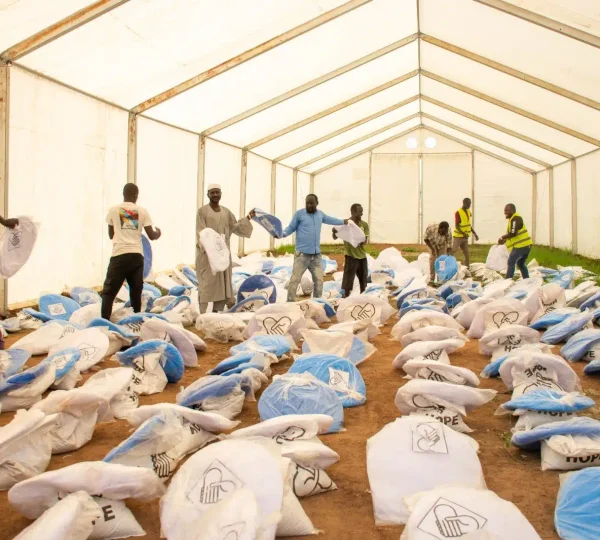Building Resilient Development Programs in Africa

Earlier this year, the U.S. government announced deep cuts to USAID’s budget for Sub-Saharan Africa, slashing planned allocations by up to 83% and placing $58.4 billion in aid at risk.
Programs that had long served as lifelines—from HIV/AIDS treatment and maternal health to agricultural support—were abruptly underfunded or paused, leaving communities scrambling for basic services. Legal stays temporarily eased the immediate fallout, but the uncertainty around future disbursements forced NGOs to confront the harsh reality that foreign aid can no longer be assumed as a stable revenue source.
For decades, foreign assistance filled critical development gaps: in 2023, USAID directed billions to humanitarian relief (47%), health (38%), and economic development (8%) across the region. Yet this reliance on a single major donor created a pronounced risk: as U.S. domestic politics shifted, so too did aid priorities. When budgets tightened—as they did under rising donor fatigue and competing homeland demands—NGOS found themselves suddenly under-resourced, struggling to maintain programming and staff. Similar cuts at UN agencies—like the World Food Program’s 40% funding drop, forcing deep operational cuts—underscore that no organisation is immune to these global trends.
Why Resilience Must Replace Dependency
Geopolitical instability, fiscal pressure in donor countries, and a more fragmented global economy mean that large-scale aid is less reliable than ever. Donor fatigue—driven by economic uncertainties and shifting policy priorities—has reduced the appetite for overseas giving, even as needs within Africa remain acute. To thrive in this volatile environment, African NGOs must transition from reactive, grant-driven fundraising to proactive strategies that build multiple revenue pillars. This strategic pivot is not merely about survival; it’s about empowering organisations to set their agendas and ensure continuity of vital services regardless of external shocks.
Pioneering Sustainability: Real-World Examples
Local Donor Engagement
Some NGOs are turning inwards, cultivating support from African philanthropists and diaspora communities. The Foundation for African Social Entrepreneurship (FASE) in Sierra Leone, for example, has engaged local business leaders and expat networks to fund vocational training programs, reducing reliance on U.S. grants and fostering a sense of ownership among home-grown stakeholders.
Digital Fundraising Campaigns
Digital platforms have unlocked new donor pools. DevelopAfrica’s peer-to-peer fundraising portal lets supporters launch personalised donation drives—inviting friends and family to contribute online and track progress in real time. This approach turned thousands of small contributions into a stable funding base, demonstrating the power of grassroots digital outreach.. Similarly, Oxfam’s SMS-based campaigns use story-driven texts to prompt micro-donations, bypassing lengthy grant processes and connecting donors directly to impact stories.
Social-Enterprise Models
Blending business acumen with mission, social enterprises are growing as sustainable non-profit arms. In Uganda, solar-powered water kiosks run by community cooperatives sell clean water at affordable prices, with profits funding nearby health education clinics. This model not only secures revenue but also aligns incentives for maintenance and community ownership.
Innovative Financing and Revenue Streams
Beyond earned income models, NGOs are exploring social-impact bonds, corporate partnerships, and fee-for-service offerings. Training workshops, consulting services, and certification programs generate predictable fees while building organisational capacity and expertise. Climate Action Accelerator’s carbon-credit projects, for instance, allow NGOs to monetise environmental stewardship through verified credits sold on global markets—a dual benefit for sustainability and finance.
The end of guaranteed foreign aid must be the start of a new chapter for African development; by diversifying revenue through local philanthropy, digital fundraising, social enterprises, and innovative financing, NGOs must now build resilience, control their destinies, and continue delivering critical services without fear of abrupt cuts.
The organisations that embrace these strategies will not only survive but also lead in crafting a self-directed, sustainable future for Africa.
Ready to invent the future?
Our teams possess extensive in-market experience that drives measurable growth for brands. Please reach out to us to learn more.
